Continued from Part 1 of Nada’s story.
After graduating from the University of Southern California, earning my master’s degree from Columbia University’s Graduate School of Journalism in New York, and starting my career in Los Angeles, I made a winter trip back to Cairo for a cousin’s wedding. My future husband happened to be in Cairo at the same time, visiting his family.
We had been introduced through mutual family friends several years earlier in California, but life took us our separate ways. Now that we had each completed our studies and gotten started in our careers, the timing was right. (The commonalities between us as Egyptians who had lived, studied, and worked abroad, were a good starting point for a matchmaking opportunity.) The Egyptian grapevine worked its magic, and the next thing I knew, I was meeting him for lunch.
We hit it off and saw each other almost every day during my two-week stay. There was one catch, though: I lived in Los Angeles and he lived in London. In a year, he would be moving even farther away: the United Arab Emirates (UAE), based in Dubai as a management consultant.
We made it work, though. Once a month, he took a redeye flight to visit me in L.A. for a whirlwind weekend. I was covering the 3 a.m. to 11 a.m. shift at the Associated Press, which would normally be terrible — but in my case, worked perfectly for our eight-hour time difference, allowing us to enjoy lengthy phone calls on my way to and from work.
Continuing the cycle
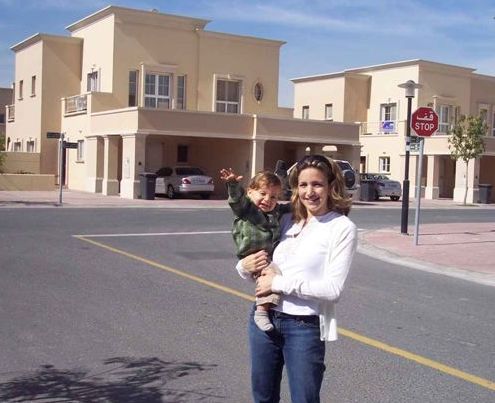
Getting married resolved our long-distance challenge, but marked the beginning of my “trailing-spouse” life. I was sad to say goodbye to my job at the AP’s Los Angeles bureau and, once again, start over in a different country.
In contrast to my childhood move from California to Egypt, moving to Dubai rated a more positive 11/15 on the Gupte Scale: 4 points each for destination and resources, and 3 for timing.
My husband assured me that we would probably only be in Dubai for a couple of years, and that our next destination would likely be the U.S. We ended up staying for 16, however, starting as newlyweds and leaving with three kids.
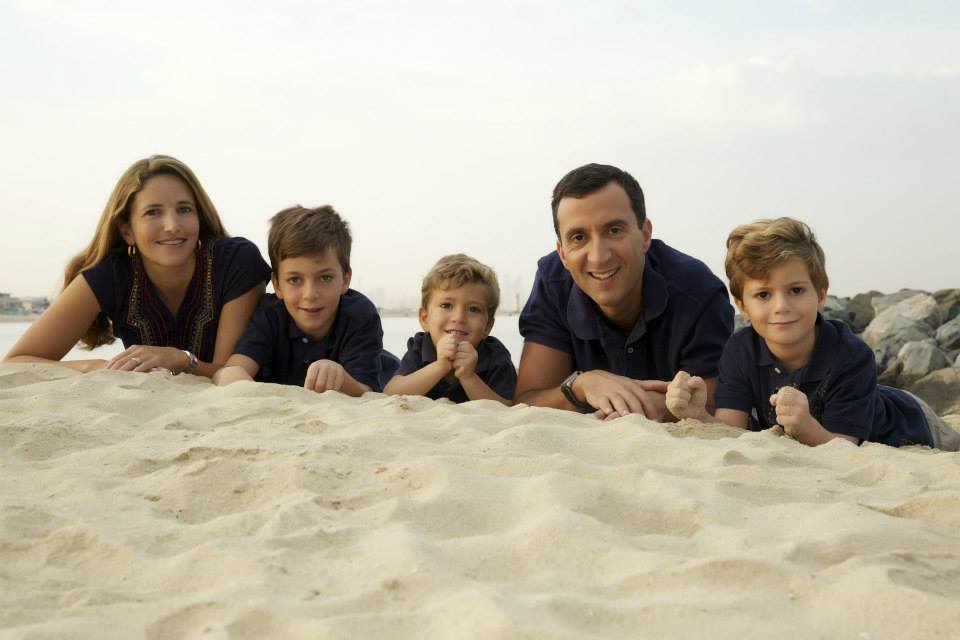
This shouldn’t have been a huge surprise. My mom had followed my dad from Egypt to the U.S., with the plan being that my dad would finish his Ph.D. and they would “go home.” They ended up staying permanently, except for the two-year sabbatical in Egypt; more than 40 years later, my dad is still in southern California.
To be fair, my husband always told me we could pull the plug on Dubai at any point if I was unhappy. The same was true for my parents. They constantly discussed whether they should return to Egypt or stay longer in the US. It was never a one-sided decision; it was always a partnership.
Exploring new roles
If I learned just one thing from our years in Dubai, it is that you should move to a new place with the mindset that you may be there for good — or, that you may be leaving before you have done everything you wanted to do there. In other words, find a balance between “when am I leaving?” and “I have all the time in the world.”
In hindsight, I wish I had not persisted in a “this is just temporary” frame of mind for so much of my stay. Initially, I freelanced rather than taking a full-time journalism job; we rented rather than buying a home; we opted for IKEA furniture instead of made-to-last pieces.
Meanwhile, I stepped into various roles: wife, expat, editor, freelance journalist, runner, and adventurous mother to three very active boys.

The hardest part about living in Dubai was being a 16-hour flight away from my parents and two brothers. We would see them only once or twice per year. My mom used to always ask when we would move to California, and we never had an answer. It absolutely breaks my heart that we never got the chance to live closer before she passed away from cancer in the summer of 2018. It only took a few months from the lymphoma diagnosis to the horrible day we lost my 60-year-old mom in the intensive care unit.
The sacrifices we had made by living abroad, isolated from our extended family, took on a heightened meaning after that, and we began to consider our options. At the same time, my mom’s death may have led me to throw myself back into my career. In January 2019, after years of worrying that it would be too difficult to balance raising three kids with the demands of a full-time journalism career, I accepted a business reporter position at The National, an Abu Dhabi-based newspaper.
Making a move, together
I had been working for The National for just over a year when 2020 happened — and we all know what happened in 2020. Epidemic, pandemic, homeschooling, WFH, panic, stockpiling, quarantine, lockdown, isolation, social distancing, mask-wearing, hand-washing, disinfecting… And in the middle of all this? My husband was offered a new career opportunity in Egypt.
As a couple, we had talked about the possibility of moving to Cairo in the past, but we had always hesitated, worrying about things like the pollution, traffic, and bureaucracy. However, we also considered the benefits that had inspired my parents to move my family to Egypt all those years ago: the move would immerse our three sons (ages 10, 12, and 15) in our culture, heritage, Arabic language, and family life.
We decided to go for it, and I submitted my resignation notice. Somehow in one month, during a pandemic, we managed to sell our cars, hire movers, and do everything else that comes with moving after 16 years in the same place. There were plenty of breakdowns in between, with me constantly saying “there’s not enough time!” Yet, we boarded the plane to Cairo in July — masked, gloved, and 13 pieces of luggage in tow.
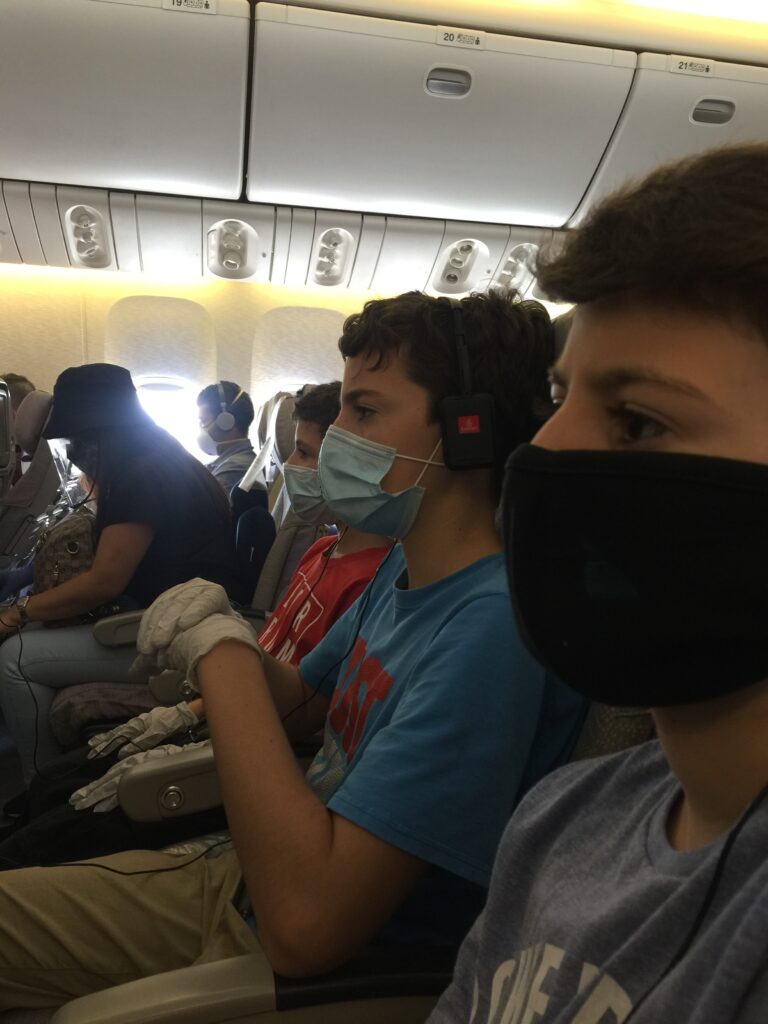
Moving to Egypt for the third time ranked an 11/15 on the Gupte Scale for me: OK (3) on destination, but pretty good (4) on resources and timing.
The kids did not view the move as favorably, however. I thought they would be excited to be living close to their paternal grandparents, cousins their age, and extended family galore. But, I had forgotten what it felt like to be in their shoes. Make new friends? Speak Arabic? Leave our house in comfortable Dubai to live in an apartment in crowded, noisy, polluted, chaotic Cairo?
For the 21st century, add “slow internet” to their misery mix — and the fact that they couldn’t properly say goodbye to their friends in Dubai, due to COVID-19 restrictions.
In the early days of this tough transition, our youngest son said, “There are literally no advantages to moving here.” When I countered, “What about family?” he said, “Yeah, yeah, OK, family. That’s it.”
I told him, “You know, I felt the same way when I moved here when I was a kid. But I promise you, it will get easier.” He didn’t believe me. I decided to start reading my old “Like An Egyptian” columns to them from USC’s Daily Trojan newspaper, which they have enjoyed. Still, kids always think that their parents just don’t get it.
Trailing kids in Covid times
In some ways, my sons are starting at an advantage in comparison to me when I moved to Egypt as a kid. All three of them had studied Arabic at their school in Dubai, and they are attending an American school in Cairo, which allows them to communicate mostly in English.
In other ways, the challenges that come with fitting into a new environment feel like déjà vu. While they have joined soccer and tennis teams at the nearby sporting club, making friends and understanding cultural nuances do not come easily. They also complain about the Arabic tutor who comes twice a week, living in an apartment, and did I mention the spotty WiFi?
The pandemic has added another layer of complexity. They attend school wearing masks both indoors and outdoors, keeping a distance of one to two meters apart. We are extremely fortunate that the school gradually returned to in-person learning, but online learning at the start of the year initially made meeting classmates difficult.
For the first time in the kids’ lifetimes, we could not spend the summer in L.A., visiting my dad and brothers, due to COVID-19 health and travel restrictions. We shifted our plans to winter break, but when southern California became America’s new coronavirus epicenter, we canceled that trip, too.
We decided to ring in the New Year back in Dubai instead — but when the more contagious strain found in the U.K. began causing Gulf countries to close their borders, we canceled those plans and resigned ourselves to spending quality time sight-seeing locally and spending time with our extended family.
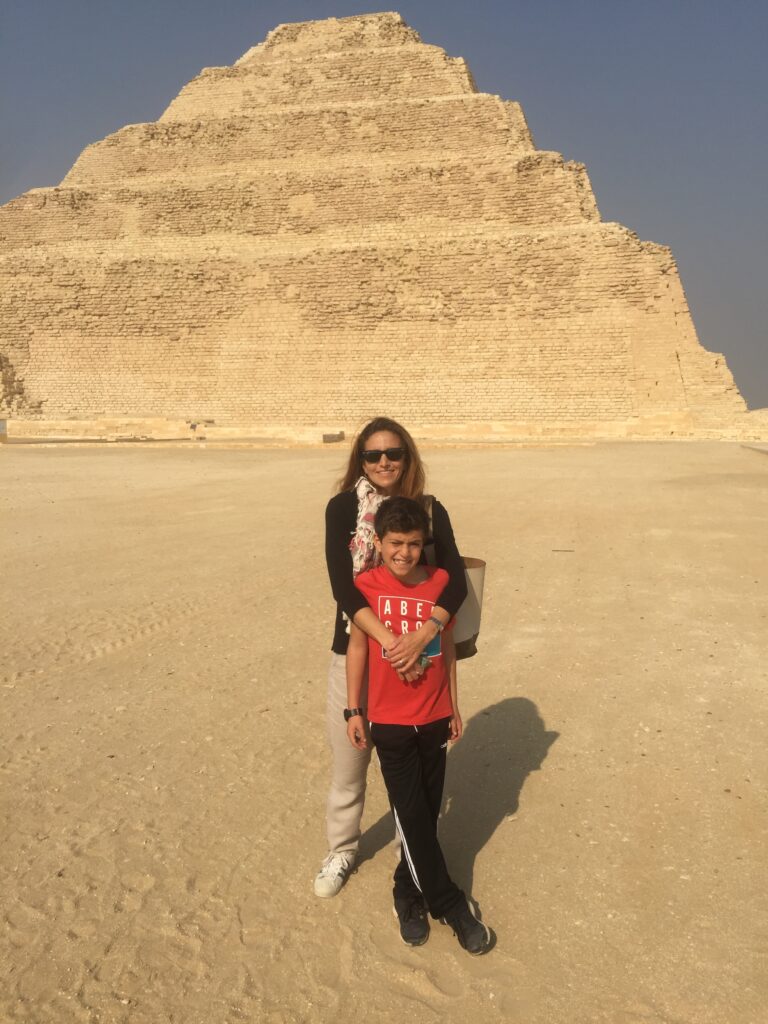
The kids were heartbroken; they felt like we owed it to them to go back to Dubai after our rushed departure. Our 15-year-old Teymour felt especially trapped, arguing, “I just don’t want to stay here.” It turned out to be the right decision, though. On the very day we were meant to travel to Dubai, my husband tested positive for COVID-19. A few days later, Teymour tested positive, too.
We spent our winter break isolating from one another, the only consolation for Teymour being his access to nonstop PlayStation for two weeks straight. Thankfully, he was asymptomatic and my husband only had mild symptoms (fever and cough). My husband recovered within two weeks and we were all reminded to count our blessings.
New year, new beginnings
We don’t know how long we will live in Cairo, but I am applying the lesson I learned from Dubai: we should make the most of our time here. There are certain things we cannot do amid the pandemic, but there is so much we can do.
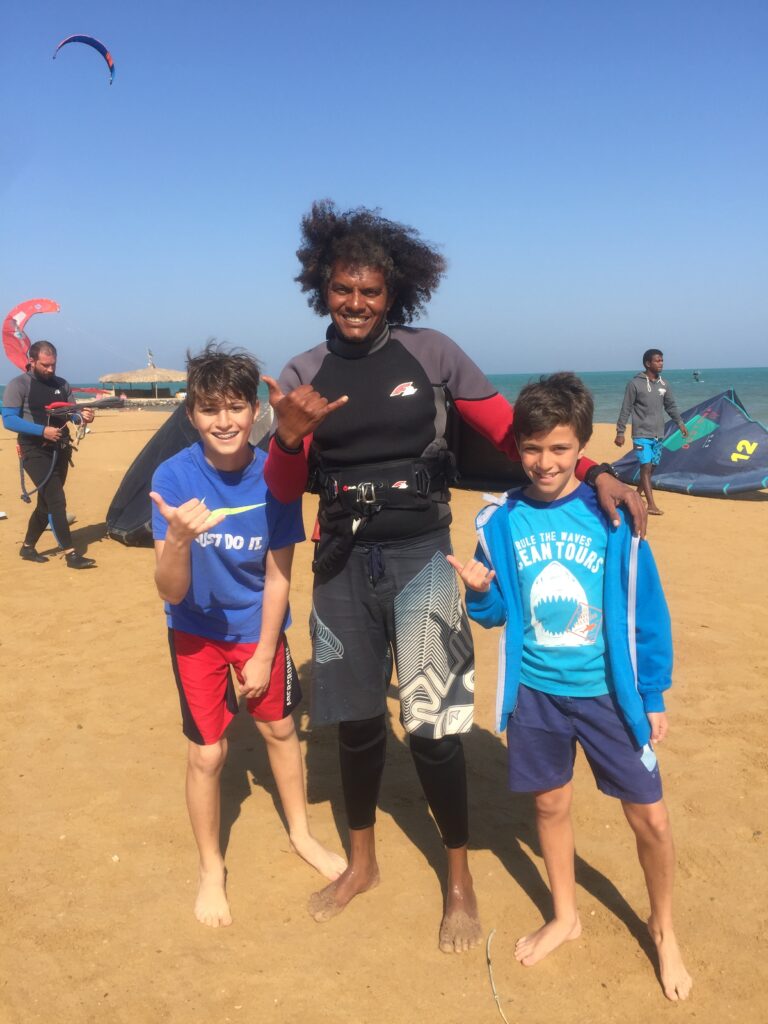
Egypt is a treasure trove of tourist sites, and we have only scratched the surface. I took the kids to the Sakkara pyramid and my grandma’s farm, as my parents did with us. They have learned to kitesurf and snorkeled in the Red Sea. I look forward to hopefully visiting the Siwa oasis and climbing Mount Sinai at some point.
As for starting over yet again, I have realized I need to consciously look at how far I have come, rather than how much farther there is to go. I may have had to leave my job in the UAE, but I recently rejoined The National as Cairo correspondent, which is an even more exciting new challenge.
I still have a “khawaga” accent and tend to mix up Arabic’s masculine and feminine articles, but I’m quickly learning new words like “seyana” (maintenance), “hagar” (batteries), “kamama” (mask), and “lekah” (vaccine). I’m even able to respond to WhatsApp messages in Arabic. (Pro tip: As a phonetic language, the Arabic dictation feature works surprisingly well.)
There are still times I can’t help getting frustrated — like when a lady hit our car in a parking lot and told me, “You live in Cairo, that’s par for the course,” or when I waited an hour for a doctor appointment, while being told “just 10 more minutes” every 10 minutes. My grandma wisely reminded me, “Things don’t come easy here. You need to have patience. If you don’t have patience, you’ll feel frustrated all of the time.” In other words, remember the Egyptian “IBM” system: “insha’ Allah” (God willing), “bokra” (tomorrow), and “ma’alesh” (nevermind).
Our current experience certainly would have been very different had it been my first time moving to Cairo or adjusting to a “trailing” situation. Now, I can tell my kids with confidence: “ma’alesh, insha’ Allah bokra will be better.”

